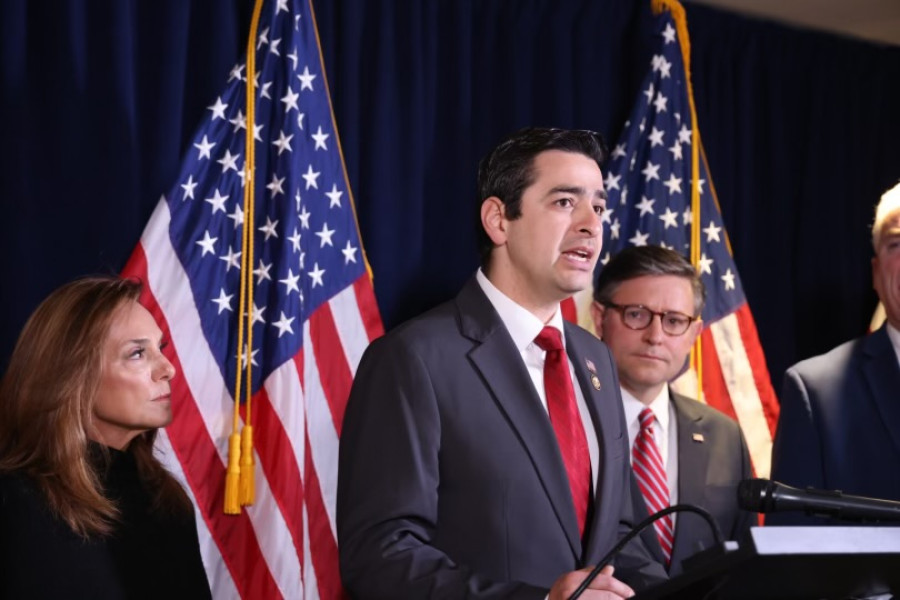Health
U.S. Lawmakers Reintroduce Mobile Cancer Screening Act for Rural Areas

U.S. Representatives Gabe Evans and Raul Ruiz have reintroduced the Mobile Cancer Screening Act, aiming to enhance access to cancer screening services for rural communities. This legislation seeks to establish a federal grant program that would enable rural hospitals and health care centers to acquire mobile screening units, designed to bring essential health services directly to patients’ homes.
The initiative addresses a significant public health concern. According to the bill’s text, cancer remains the leading cause of death in the United States, and many individuals in rural areas encounter obstacles when seeking timely screenings. “Far too many Coloradans and Americans in rural areas face barriers to cancer screening services simply because of where they live,” Evans stated in a news release. He emphasized the importance of delivering lifesaving health care to communities that need it most.
Legislative Background and Goals
Originally introduced in December 2024, the Mobile Cancer Screening Act was referred to the House Committee on Energy and Commerce for review. The recent reintroduction aims to revive discussions on the bill and ensure it receives the attention necessary for potential passage. The act seeks to eliminate transportation barriers faced by patients who must travel long distances to access clinics. By facilitating mobile screenings, the legislation intends to make cancer detection more accessible and timely.
Evans expressed his commitment to bipartisan collaboration, stating, “I am proud to help lead the fight to expand access to mobile cancer screening units and ensure every family has a fair shot at timely, quality care.” He stressed the need for all members of Congress to work together to lower costs and expand access to healthcare services for those who require them most.
Impact on Rural Healthcare
The Mobile Cancer Screening Act comes at a crucial time, particularly following the passage of significant healthcare legislation, referred to as the One Big Beautiful Bill, in early July 2024. Critics of that bill raised concerns about stricter stipulations on Medicaid, suggesting that such changes could lead to decreased funding for rural hospitals. This situation could result in the closure of facilities and increased travel distances for patients seeking necessary care.
Ruiz, a Democrat representing California’s 25th District, highlighted the pressing need for mobile screenings in underserved areas, reinforcing the notion that equitable access to healthcare is essential for community well-being. The reintroduction of this act underscores the ongoing commitment by lawmakers to address health disparities and improve outcomes for vulnerable populations.
As the Mobile Cancer Screening Act moves forward in Congress, its potential impact on rural healthcare access remains a central focus for both supporters and opponents of the legislation. If passed, it could significantly alter the landscape of cancer detection and treatment in rural America, providing essential services to those who need them the most.
-

 Lifestyle3 months ago
Lifestyle3 months agoLibraries Challenge Rising E-Book Costs Amid Growing Demand
-

 Sports3 months ago
Sports3 months agoTyreek Hill Responds to Tua Tagovailoa’s Comments on Team Dynamics
-

 Sports3 months ago
Sports3 months agoLiverpool Secures Agreement to Sign Young Striker Will Wright
-

 Lifestyle3 months ago
Lifestyle3 months agoSave Your Split Tomatoes: Expert Tips for Gardeners
-

 Lifestyle3 months ago
Lifestyle3 months agoPrincess Beatrice’s Daughter Athena Joins Siblings at London Parade
-

 World3 months ago
World3 months agoWinter Storms Lash New South Wales with Snow, Flood Risks
-

 Science3 months ago
Science3 months agoTrump Administration Moves to Repeal Key Climate Regulation
-

 Science2 months ago
Science2 months agoSan Francisco Hosts Unique Contest to Identify “Performative Males”
-

 Business3 months ago
Business3 months agoSoFi Technologies Shares Slip 2% Following Insider Stock Sale
-

 Science3 months ago
Science3 months agoNew Tool Reveals Link Between Horse Coat Condition and Parasites
-

 Sports3 months ago
Sports3 months agoElon Musk Sculpture Travels From Utah to Yosemite National Park
-

 Science3 months ago
Science3 months agoNew Study Confirms Humans Transported Stonehenge Bluestones









